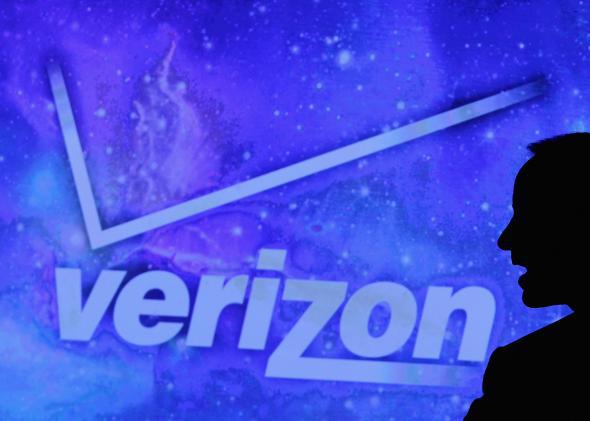Comcast isn’t the only telecom giant that Netflix has had problems with. The streaming service has been locked in battle with Verizon all month over who is at fault for slow Netflix streaming speeds on FiOS. Mounting evidence suggests Verizon is the one to blame, but here’s something pretty definitive: Accessing Netflix on FiOS, but through a virtual private network (VPN), speeds streams up. Which shouldn’t happen.
Colin Nederkoorn, a co-founder of the software development company Customer.io, explains in a blog post that when he played a Netflix speed test video to see how fast it was streaming, he got 375 Kbps—which is just 0.5 percent of the 75 Mbps download speed FiOS claims.
So Nederkoom thought to connect to a VPN and see how fast Netflix would be. VPNs usually make everything slower because data sent through the network is encrypted on the sender side and then decrypted on the recipient’s side. It’s an extra hurdle that’s worth it if a user needs security, but is inefficient for something like Netflix that a user doesn’t need to further protect. Unless they’re trying to access another country’s Netflix content.
But when Nederkoom connected to VyprVPN and started the test video, it streamed at 3 Mbps, or about 10 times the VPN-free speed. “It seems absurd to me that adding another hop via a VPN actually improves streaming speed,” he wrote. (It’s worth noting that Ars Technica has been writing about using VPNs as proof of throttling for a while.)
Absurd is a good word for it. Reduced speed is usually a huge drawback to security measures that involve encryption like VPN. In this case, though, the speed loss is negligible compared with the gain that comes from tricking Verizon into thinking you’re in a different place, where the Netflix streams aren’t intentionally slowed down. Verizon will probably continue to posture and defer blame so it’s all of our jobs to start giving them some side-eye.
Update, July 30, 2014, 3 p.m.: Golden Frog, the company that makes VyprVPN, sent me a statement about its interpretation of the situation. The company’s CTO Philip Molter said,
We’ve seen a lot of people accuse Verizon of throttling. However, what is happening likely isn’t technically “throttling.” Instead Verizon is simply neglecting to deal with traffic congestion because they have no incentive to do so.
Netflix appears to be using Level3 to get to Verizon. If these Level3/Verizon links are saturated (reports are that they are), then performance through those links is going to suffer because the pipe is not big enough for all the bits that need to go through it. Golden Frog uses multiple backbone providers to get to Verizon customers, so we avoid those congested links. Our paths to Verizon are not congested.
Maybe Verizon is just being lazy and isn’t willfully penalizing Netflix.
